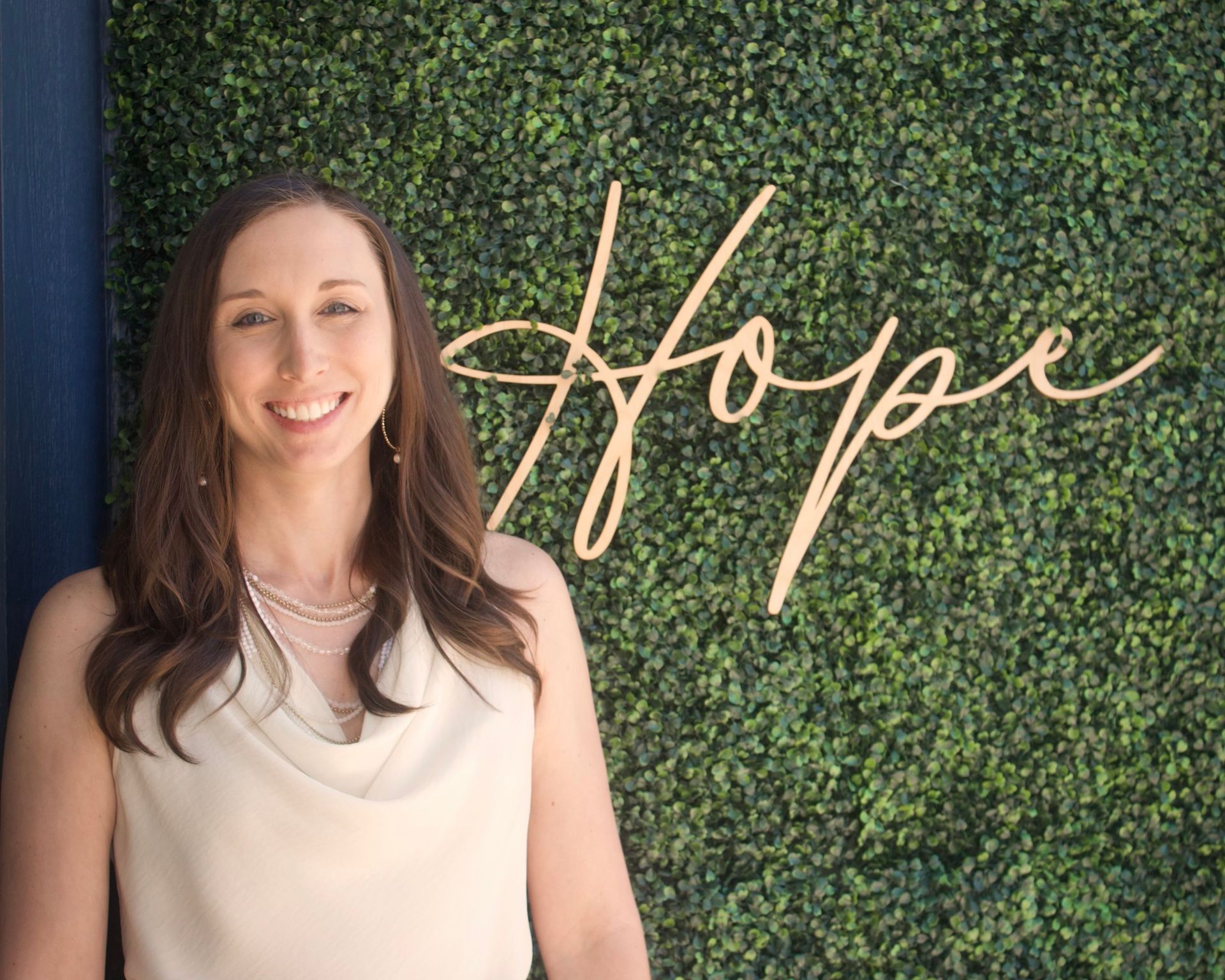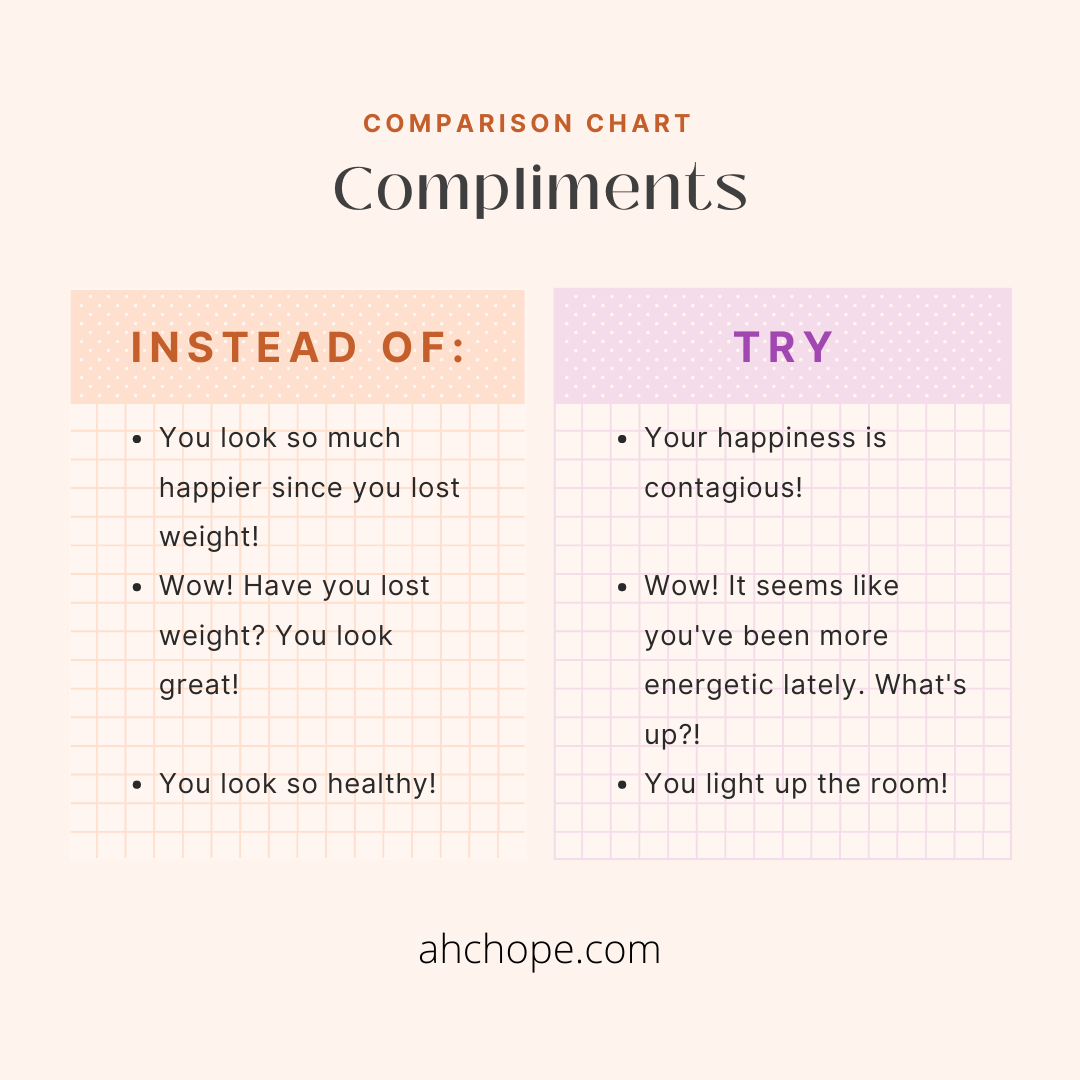The AHC Blog

Have you ever found yourself overwhelmed by your own feelings, reacting in ways that feel automatic or out of control? Maybe you’ve snapped at a friend, felt paralyzed by anxiety, or criticized yourself mercilessly over something small. If this resonates, you’re not alone. And there’s a therapeutic approach that might help you understand and work with these experiences: Internal Family Systems (IFS) therapy. What is IFS Therapy? Internal Family Systems is an evidence-based therapeutic model that views the mind as made up of distinct “parts”, each with its own thoughts, emotions, and roles. Some parts protect us, some carry pain, and some try to keep us safe, even if their methods are extreme. Trauma, stress, and everyday life experiences can cause these parts to blend with our core Self (the calm, compassionate, and curious center of who we are). When blended, a part takes over, and we might feel consumed by anger, fear, shame, or sadness. IFS has been shown to be effective for: Trauma recovery Anxiety and depression Addiction and compulsive behaviors Self-esteem and relational challenges One of its strengths is that it works alongside other trauma-focused therapies, like EMDR (Eye Movement Desensitization and Reprocessing), allowing for deeper processing of traumatic experiences while keeping the Self in the lead. Everyday Examples of Blending Blending happens in ways we might not even notice. For example: You make a small mistake at work, and suddenly your inner critic blares: “I’m a failure. I’ll never get this right.” Your friend cancels plans, and an anxious part floods in: “They must not like me. Something must be wrong with me.” A memory triggers anger, and it feels like you’re the angry part: shouting, pacing, or clenching your fists before thinking. In these moments, it’s easy to believe you are the part, rather than seeing it as a part of you that has a role and a story. That’s where unblending comes in. 7 Practical Strategies to Unblend Here are some ways IFS therapy helps you step back from overwhelming parts so you can respond with clarity, compassion, and calm: 1. Name the Part Instead of “I’m anxious,” try: “There’s an anxious part in me right now.” Naming creates a bit of distance, letting your Self observe rather than be overtaken. 2. Notice the Sensations Pay attention to where the part’s energy shows up in your body. Maybe your chest tightens, your stomach knots, or your jaw clenches. Recognizing this helps you stay grounded in the present. 3. Approach With Curiosity Ask your part gentle questions: “What are you trying to protect me from?” or “Why do you feel this way?” Curiosity shifts your stance from being swept away to being present and understanding. 4. Practice Self-Leadership Remind yourself: “I am here in my Self. This part is separate. I can listen without being controlled.” This reinforces your Self as the leader. 5. Visual Separation Imagine the part as a separate figure in front of you, or as an image in your mind. This helps you relate to the part rather than merge with it. 6. Dialoguing With the Part Talk to the part internally or on paper: “I see you’re anxious. I want to understand what you need.” This reinforces connection instead of conflict. 7. Grounding in the Present Focus on your breath, your feet on the floor, or your surroundings. Grounding prevents the part from dragging you into old stories or extreme emotional reactions. The Daily Unblending Challenge Here’s a simple 5–10 minute exercise you can try each day to practice unblending: Sit quietly and take 3 slow, deep breaths. Notice one part that has been active or challenging today (anxious, angry, critical, or sad). Name it: “This is my anxious part” or “This is my inner critic.” Notice where you feel it in your body. Ask one gentle question: “What do you need from me?” or “Why are you here?” Imagine the part separate from you, standing in front of you or visualized in a safe space. Take a moment of grounding, focusing on your feet, breath, or surroundings. Reflect: Notice the difference in your awareness and sense of Self. Try this challenge daily for a week and see how your relationship with your parts, and your emotional reactions, can shift. Taking the Next Step If you find that your emotions or trauma feel overwhelming, professional guidance can help. Anchoring Hope Counseling offers skilled therapists, medication management, and a wellness app to support your journey. Our team can help you integrate IFS, EMDR, and other evidence-based approaches to give you tools for long-term healing. Visit our Contact page today! You don’t have to face your inner parts alone—with support, curiosity, and self-compassion, you can navigate your emotions and reclaim your sense of Self.

When people think of Post-Traumatic Stress Disorder (PTSD), they often imagine flashbacks, nightmares, or feeling constantly on edge. But one of the most common and sometimes overlooked parts of PTSD is avoidance. Avoidance is when someone works very hard to stay away from reminders of what happened to them. In the moment, it can feel like the safest option. Over time, though, avoidance can also keep people feeling stuck. What Avoidance Can Look Like Day to Day Avoidance does not always mean running from danger. It often shows up in quiet, everyday ways. Someone living with PTSD might: Take a different route home to avoid passing a certain place. Stay overly busy so there is no time to think or feel. Hold back from sharing feelings with loved ones, even when craving connection. Skip activities, gatherings, or opportunities that once brought joy. Retreat into isolation because it feels safer than risking a trigger. These choices may offer short-term relief, but they can also make life feel smaller and lonelier. Healing means slowly reclaiming the parts of life that trauma tried to take away. Gentle Ways to Care for Yourself Working through avoidance does not mean diving headfirst into the hardest memories. Instead, it is about taking small, compassionate steps toward healing. Here are some ways to begin: Stay grounded in the present. Noticing the feel of your feet on the floor or taking steady breaths can remind your body that you are safe in this moment. Use journaling as a release. Putting thoughts and feelings on paper can bring relief and create space for processing. Take small steps forward. Gently reintroducing avoided activities in manageable doses allows you to celebrate progress along the way. Practice mindfulness. Being present with your thoughts and feelings without judgment can help reduce the urge to push them away. Reach out for support. Sharing space with trusted friends, family, or support groups can ease the loneliness of avoidance. These tools do not replace professional treatment, but they can help you feel more empowered in daily life. Healing Through Treatment PTSD is treatable, and there are proven therapies that help people move through avoidance in safe and effective ways: EMDR (Eye Movement Desensitization and Reprocessing): Helps the brain reprocess traumatic memories so they lose their overwhelming power. Trauma Processing Therapy: Creates a safe space to explore experiences at your own pace. Cognitive Processing Therapy (CPT): Focuses on shifting unhelpful thoughts and beliefs that keep avoidance in place. Medication support: Can reduce symptoms like anxiety or sleeplessness, making it easier to fully engage in therapy. Anchoring Hope: A Partner in Your Healing At Anchoring Hope Counseling & Medication Management, we know how heavy avoidance can feel, and we also know it does not have to last forever. Our compassionate team walks alongside you, offering evidence-based therapies like EMDR, CPT, and trauma processing. We also provide medication management when it is helpful, making sure your treatment supports both your mind and body. Healing does not happen overnight, but you do not have to walk the journey alone. With the right support, you can begin to release avoidance, reclaim your life, and rediscover hope.

Boundaries can be one of the most challenging—and most important—parts of maintaining healthy relationships. Many of us were never taught what a boundary looks like, and if you have a history of people-pleasing, it can feel uncomfortable or even “wrong” to consider putting your own needs first. Yet boundaries are not walls meant to keep others out. They are healthy guidelines that allow us to stay grounded, safe, and connected without losing ourselves. At our counseling practices in Wise, Abingdon, and Pennington Gap, Virginia, we often meet individuals who struggle with boundaries because they’ve learned to prioritize others’ comfort over their own well-being. Setting limits can bring up confusing emotions—fear, guilt, sadness, or even anger—but it’s also one of the most powerful ways to protect your mental health. When Might You Need to Set Boundaries? Boundaries often become necessary when something in a relationship starts to feel “off.” Maybe you notice that you leave interactions feeling drained or resentful. Perhaps you find yourself saying “yes” when you really mean “no,” simply to avoid disappointing someone. Or you may notice patterns of overcommitment, where you have little time or energy left for yourself. These moments are signals that a boundary could help restore balance. Boundaries can be especially important around time, emotional availability, and respect. For example, saying no to extra responsibilities at work when your plate is already full, or letting a friend know that constant late-night texts are disrupting your rest. While each situation is unique, the common thread is this: boundaries help protect your energy and values. How to Know if Your Boundary Is Appropriate It’s natural to wonder if you’re being “too harsh” or “selfish” when setting a boundary, especially if you’re used to people-pleasing. One helpful way to check yourself is to ask: Is this boundary about taking care of my well-being, or is it about controlling the other person? Healthy boundaries focus on your own needs. For example, “I won’t be answering work calls after 7 p.m.” is about caring for your rest, while “You’re not allowed to call me after 7” puts the focus on controlling someone else. The difference may seem small, but it matters. Approaching boundaries from a place of self-care makes them more respectful, both to you and to the other person. Communicating Your Boundaries Safely Sharing a boundary can be nerve-wracking. It’s not uncommon to fear rejection or conflict, especially if past experiences have taught you that asserting yourself leads to negative outcomes. When you feel safe to do so, try to: • Speak clearly and calmly about your needs. • Use “I” statements, such as, “I need more notice for plans,” instead of, “You always spring things on me.” • Keep it simple—boundaries don’t need long explanations to be valid. Still, not everyone will respond positively. Some people may resist, ignore, or even mock your boundary. This can be painful, but it’s also revealing. How someone responds to your expressed needs says a lot about the health of the relationship. If their reaction feels unsafe or consistently dismissive, it may be worth considering more distance or seeking support in managing that dynamic. Moving Forward Based on the Response • When boundaries are respected: Relationships often deepen, because both people feel heard and safe. • When boundaries are challenged but eventually honored: Growth is possible. Sometimes it takes time for others to adjust. • When boundaries are consistently rejected: This may be a sign that the relationship is unhealthy, and you may need to make hard decisions about how much access this person has to your time and energy. Whatever the outcome, it’s important to remember that your boundary is valid simply because you need it. Coping with the Outcome Even when boundaries lead to healthier relationships, the process can stir up difficult emotions. You may feel guilt for saying “no,” grief for what the relationship used to be, or fear of conflict. These feelings are normal—and they don’t mean you made the wrong choice. The first and most important step in coping is self-care. This might look like journaling to process your feelings, practicing mindfulness to stay grounded, engaging in creative outlets, or surrounding yourself with people who support your growth. Prioritizing rest, nutrition, and exercise can also help you manage the stress that comes with boundary-setting. If self-care alone isn’t enough, additional support can be helpful. Counseling provides a safe place to untangle your emotions, learn communication skills, and find validation for your experiences. For those struggling with conditions like anxiety or depression, pairing counseling with medication management can provide even more stability and support. At our locations in Wise, Abingdon, and Pennington Gap, Virginia, we are here to walk with you through these challenges with compassion and understanding. Final Thoughts Setting boundaries isn’t easy, especially if you’ve spent years putting others first. But boundaries are an act of courage and self-respect. They create space for healthier, more balanced relationships and allow you to show up authentically in your own life. If you’re wondering whether counseling could be helpful for you in this process, we invite you to take our short quiz . It’s a simple first step toward gaining clarity about your needs and exploring whether additional support could help you move forward with confidence.

Change can hit us like a wave. Sometimes it's refreshing, sometimes overwhelming, and often, completely outside of our control. Whether it’s a career transition, a relationship ending, a move, or a health diagnosis, change has a way of stirring up emotional responses that feel oddly familiar. That’s because major life changes often mirror the stages of grief. Just like we grieve a loss, we can grieve the life we expected to have. At Anchoring Hope Counseling, with offices in Wise, Abingdon, and Pennington Gap, VA, we often help clients understand that what they’re feeling isn’t just frustration or anxiety. It's grief. The Stages of Grief and Change Elisabeth Kübler-Ross’s five stages of grief — denial, anger, bargaining, depression, and acceptance — weren’t just meant for losing loved ones. They apply to the emotional rollercoaster of unwanted change: Denial: “This isn’t really happening.” We may try to push change away or pretend it won’t last. Anger: “Why is this happening to me?” This often turns into blame — of others, ourselves, or even life itself. Bargaining: “If I just work harder, maybe things can go back to how they were.” We look for ways to control the uncontrollable. Depression: “What’s the point?” We begin to feel the weight of the loss, even if it’s just the loss of certainty. Acceptance: “It’s happening, and I can move forward.” This is when we begin to make peace with our new reality. This framework helps explain why a life transition, like starting medication for anxiety, beginning depression counseling, or adjusting to a new role, can feel so deeply emotional. We're not just reacting to the change itself, but to the loss of the expectations and identity that came before it. 5 Ways to Cope with Unwanted Change Whether you're navigating the aftermath of a divorce, struggling with a sudden diagnosis, or starting a new phase of life you didn’t ask for, here are five practical ways to manage: 1. Acknowledge What You’re Feeling Name your emotions without judgment. Are you sad? Angry? Numb? Confused? All of these are valid responses. Avoiding your feelings won’t make them disappear. It just delays healing. 2. Get Grounded in Routine When everything feels uncertain, structure can help. Keep small daily routines, whether it’s your morning coffee ritual, a walk after dinner, or weekly therapy in Wise or Abingdon. Familiar patterns offer stability. 3. Reach Out, Don’t Isolate Talk to people you trust. Counseling is especially helpful when you feel stuck in a loop of grief or anxiety. We see this often in anxiety counseling. Connection creates clarity. If you're in the area, Anchoring Hope Counseling in Abingdon offers both traditional therapy and medication management for deeper support. 4. Focus on What You Can Control When change takes over one part of life, zoom in on areas you still influence. Your boundaries, your attitude, and your self-care all matter. Even making decisions about what time you go to bed can restore a sense of autonomy. 5. Adjust Your Expectations Change doesn’t just challenge our routines. It challenges our internal narrative. Maybe life doesn’t look like you thought it would, but that doesn’t mean it’s ruined. Growth often begins in the space where expectations fall away. A Final Thought Change can feel like a loss, but it can also be a beginning. You don’t have to rush to feel okay. You don’t have to skip straight to acceptance. But you do deserve support while you figure it out. Whether you're seeking depression counseling, help with medication management in Abingdon, or a safe space to process the unexpected, we're here for you. You may not have chosen this change. But you can choose how you grow from it. Anchoring Hope Counseling offers trauma-informed care, flexible scheduling, and a compassionate team of providers across Wise, Abingdon, and Pennington Gap, VA. Ready to talk? We’re ready to listen.The body content of your post goes here. To edit this text, click on it and delete this default text and start typing your own or paste your own from a different source.




















